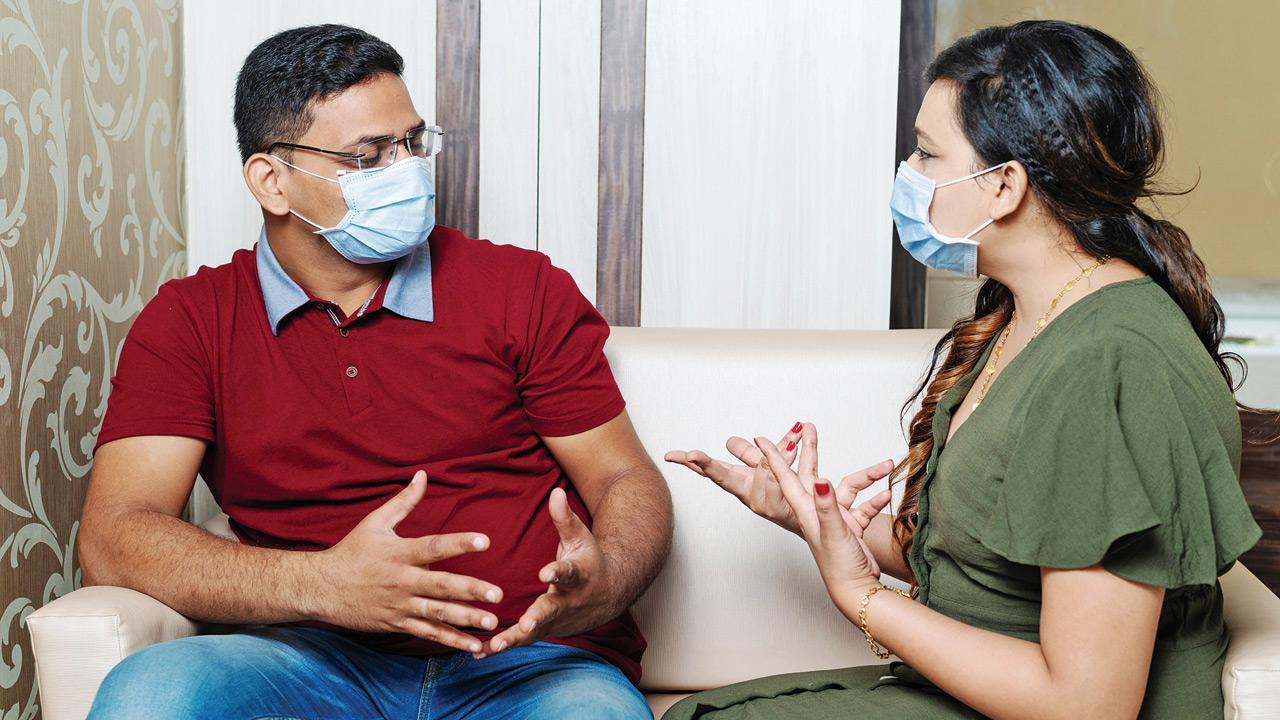The decision to opt out of the Covid-19 vaccine can take a heavy toll on partners and families, especially since it directly influences their health and mobility

The decision to opt out of the vaccine can bear heavily on your family. Representation Pic
With one of the world’s largest vaccination drives underway, a large portion of the country’s population is still undecided about the efficacy or even the need for the Covid-19 vaccine. Worryingly, a sizeable section is vehemently opposed to taking the vaccine, choosing instead to resort to home-made remedies to ward off (or recover) from the virus.
ADVERTISEMENT
Psychiatrist Dr Naazneen Ladak believes that this distrust stems from rumours being circulated on social media about the possible side-effects. “Many people are concerned about the rapid rate at which the vaccines have been developed, with trials being fast-tracked. WhatsApp, in particular, is rife with rumours about how, despite taking the vaccine, people have still contracted the virus. Most of this information is hearsay, and isn’t based on actual research,” she explains. She points out that conflicting opinions about the vaccine, especially in families with young children and senior citizens, can be a bone of contention. “Now, it’s no longer a matter of your choices affecting your own health; it’s also a question of the wellbeing of those with compromised immune systems, and of public health, at large,” she adds.
Trupti Khan with her family
The counterview
“My view on vaccines changed when I became a mother 11 years ago. I am firmly opposed to introducing potentially harmful elements wilfully into your body, which is the essence of all vaccines. I believe that the human body is perfectly capable of protecting against disease, as long as you have a strong immune system. My family and I have been focusing solely on nutritional interventions, such as consuming a plant-based diet, giving up dairy, and consuming a home-made kadha every day. By doing so, I believe I am protecting my family against the virus and, to date, none of us [including my parents and in-laws] have been negatively impacted. We do take the necessary precautions, such as wearing a mask and sanitising, when we step out,” shares Trupti Khan, a 41-year-old holistic lifestyle coach. She adds that her husband too supports her views, opting out of a vaccine drive conducted by his workplace. “We’ve had some disagreements with our extended family about our choice but I refuse to give in to their pressures. I avoid talking to those who try to convince me. I believe that you attract what you fear and hence, by refusing to let the paranoia surrounding the pandemic affect my thinking, I am safe and strong,” she adds. When asked about many public spaces (including schools and malls) mandating a double-vaccination policy, she reveals that she intends to wait it out, certain that the restrictions will soon subside.
Dr S Qureshi and Dr Naazneen Ladak
Seeing light
When confronting cases like Khan in your family or your spouse who opposes the vaccine, Dr Ladak advises against using strong words or force: “Inform them with facts and data from verified sources. If necessary, have them speak to a known doctor who they already trust, so that their fears about the vaccine can be allayed. Let them take the final decision, but do advise them about the consequences of the choices they’re making, especially on family members to whom this is patently unfair.” Dr Salaah Qureshi, MD at Qure Clinic, reiterates that younger, unvaccinated members of the family can serve as carriers to immunocompromised members. “Although the vaccine doesn’t guarantee that you will never contract the virus, your chances of complications or succumbing to it is much less. Statistically, over 90 per cent of patients who are critical are not vaccinated. While we cannot force anyone to take the vaccine, people refusing to take it should realise that they will soon be barred from entering public spaces and flights — we cannot be responsible for the misery of others,” he concludes.
 Subscribe today by clicking the link and stay updated with the latest news!" Click here!
Subscribe today by clicking the link and stay updated with the latest news!" Click here!






